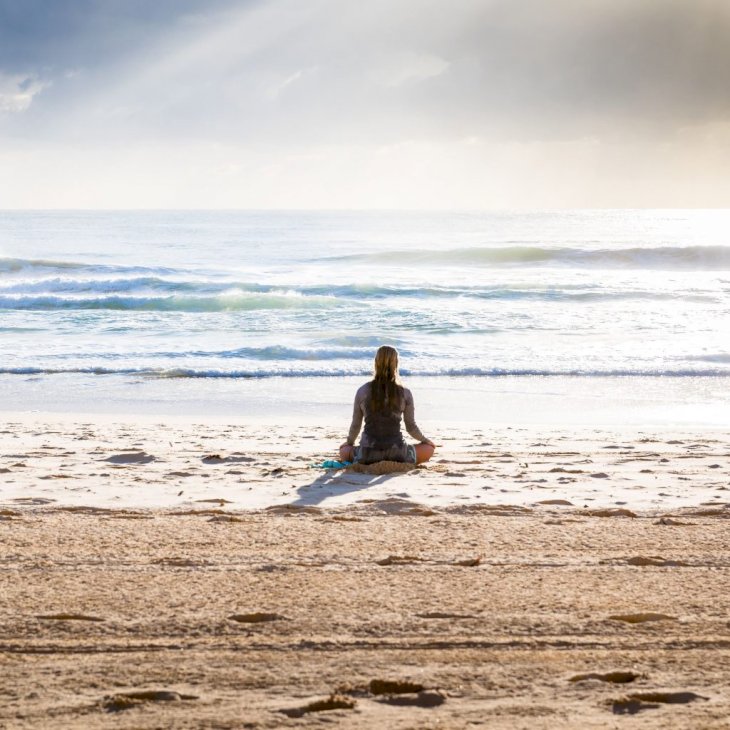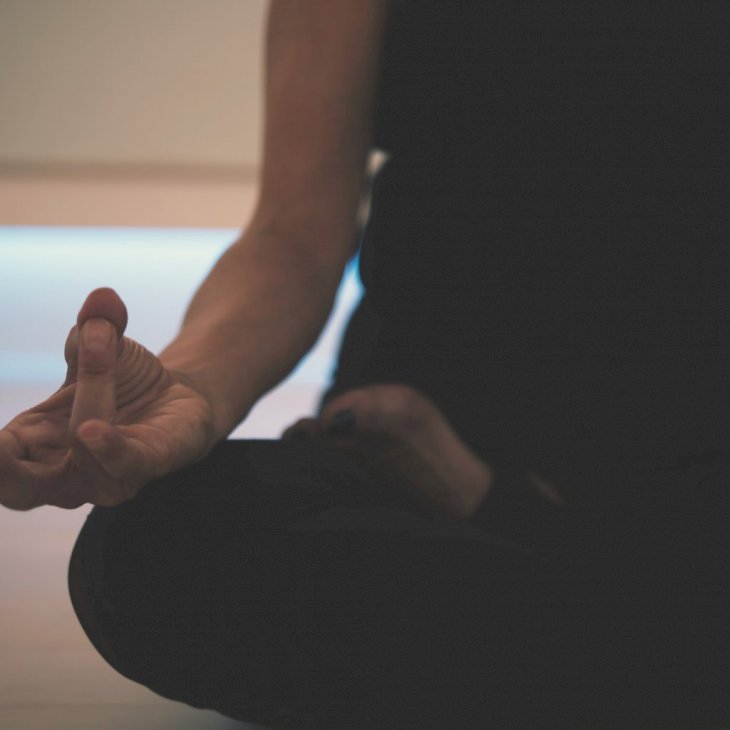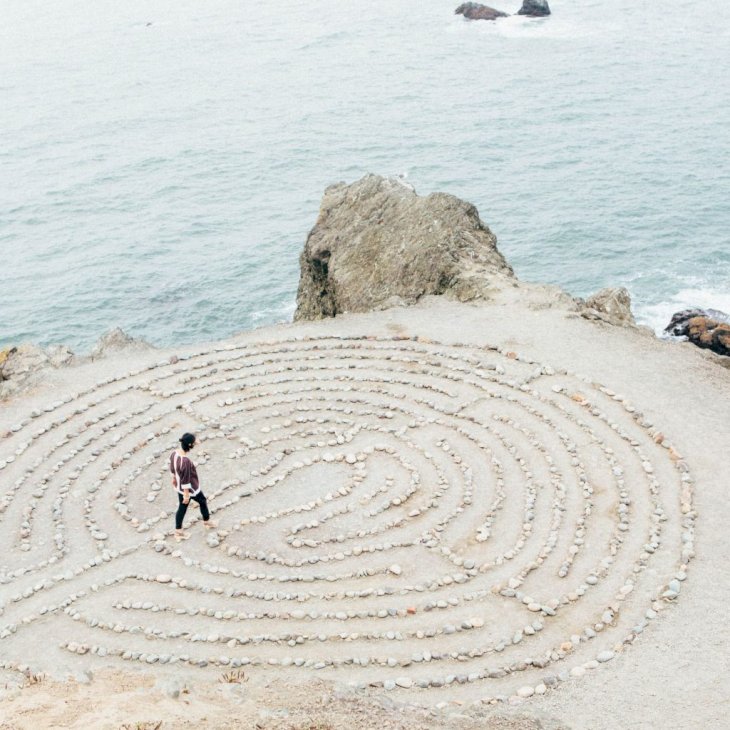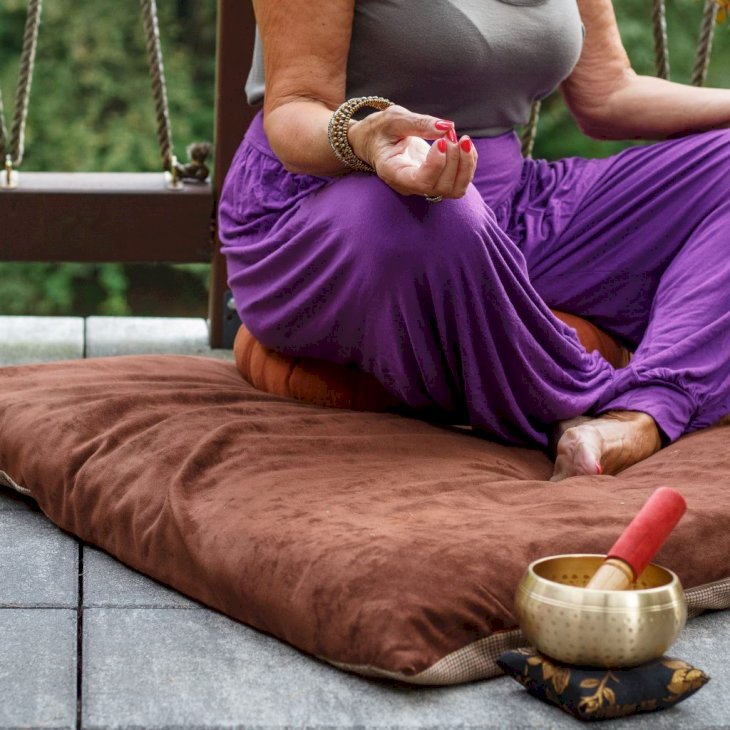
A Comprehensive Guide To Meditation
After doing some research and hearing a lot about meditation, you're considering giving it a shot. But you’re probably wondering how to get started? How do you learn? Look no further, we’ve got your back.
Meditation, by definition, means “the act of giving your attention to only one thing, either as a religions activity or as a way of becoming calm and relaxed,” or “serious thought or study, or the product of this activity.” In other words, to pay attention to the breath and just observe when the mind wanders from this task. But even if sounds easy at first, meditation may be a bit tricky. But why is that?
Even if you’re new to meditation or have already tried and got frustrated, perhaps because you’re trying to stop your mind from thinking. That’s the mistake number one people make. We can’t control our minds. Meditation is a technique, a tool that helps us to become more aware and connected with our emotions.

Photo by Simon Rae on Unsplash
If you caught yourself resisting to sit down in silence — to basically sit and do “nothing” — and wonder whether that’s normal, that’s okay. That’s absolutely normal.
The first step before choosing or even developing a meditation practice for yourself is to set your intention. I’m not talking about how you want to feel or what’s your end goal with meditation — whether you want to feel more relaxed, less reactive, or more focused — those are all benefits that eventually come with the long-term practice.
What most websites and articles out there don’t say is that we need to be committed. Simply because the mind (the ego) will try to get in the way and may come up with a list of excuses that meditation isn’t for you.

Photo by Le Minh Phuong on Unsplash
Meditation is for everyone. People have been meditating for around 3,000 years, and many have experienced the same trepidation or wonder that first-time meditators often feel.
When someone starts a meditation practice filled with expectations, expecting it to solve all their problems, chances are, you’ll get frustrated. Just a consistent practice will eventually bring a gradual yet profound change in the way you relate to yourself and the people around you.

Photo by JD Mason on Unsplash
That said, commit to a regular practice, a few times a week if possible. Set realistic goals — if you only have 10 minutes, stick with it. Be honest with yourself, because you can only build a meaningful practice with focus and discipline.
Choose a specific place where you can sit down in silence, without being disturbed, this is crucial. You may find it easier to meditate in the morning, right after you’ve woken up, or in the evening, before going to sleep. Don’t know which time is the best for you? Try both and see which one makes meditation more manageable.

Photo by Ashley Batz on Unsplash
You can start by sitting in a comfortable position. You can sit in a lotus position or a cushion, bench, chair, or whatever works for you. Rest your hands on your lap or knees.
It’s recommended to meditate for at least 10 minutes, even beginners. However, if it feels overwhelming as you’re just starting out, then there’s no harm in the beginning with three- or five-minute guided meditations.
As I’ve already said, it’s important to be clear on your motivation. If you aren’t really sure about why you’re meditating in the first place, then the chances are you might have a hard time sticking with the practice. Being clear about what you want to get out of your sessions, will make it easier to commit to it.

Photo by Susanna Marsiglia on Unsplash
As the Headspace guide for beginners says, “Meditation is a journey of a lifetime, not a sprint to instant progress.”, so take it easy on yourself. There’s no such thing as “good” or “bad” session, “over time, the more the mind learns to become less distracted and the more our awareness stabilizes.”
“To know one's own mind is nothing short of life-changing.
@Headspace